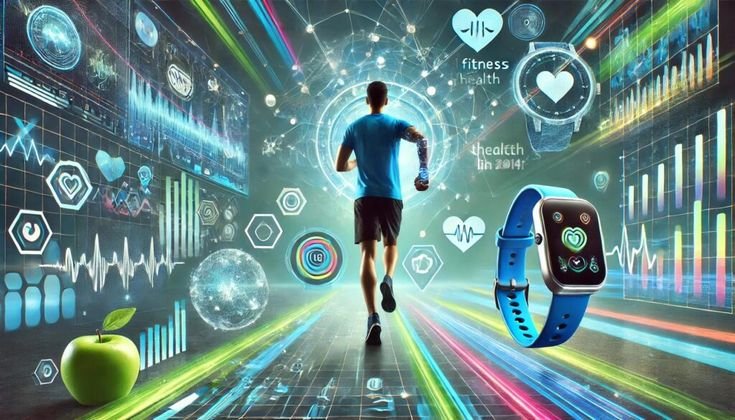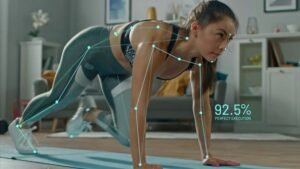Picture this: you wake up, roll out of bed, and instead of dragging yourself to the gym, you fire up an app. A cheerful voice says, “Good morning! Ready for your customized workout?” No waiting for a trainer, no scheduling conflicts, no side-eye from the gym instructor when you skip squats. Welcome to the world of AI personal trainers—where technology meets fitness in ways that are surprisingly motivating (and occasionally a little creepy).
What Exactly Is an AI Personal Trainer?
In plain English, an AI personal trainer is a digital fitness coach powered by algorithms, sensors, and machine learning. Instead of paying a human trainer to yell “one more rep!”, you rely on an app or device that designs workouts, tracks your performance, and gives feedback.
It might use motion sensors in your phone, data from your smartwatch, or even your own webcam to check your form. Some are chatty and encouraging, while others quietly crunch numbers in the background, building personalized plans.
A Brief History: From Jane Fonda to Smart Apps
Fitness has always followed trends. In the ’80s, it was Jane Fonda workout tapes. In the 2000s, it was fitness DVDs and Wii Fit. Fast forward, and now we have apps that literally use artificial intelligence to mimic a personal coach.
The rise of wearables like Fitbit and Apple Watch paved the way. Suddenly, we had constant access to heart rates, steps, calories burned. Add AI into the mix, and those numbers turn into actual training advice instead of just bragging rights.
How Do They Work?
Behind the sleek apps and cheerful notifications, there’s a mix of tech at play:
Data Collection: Sensors track movement, heart rate, sleep patterns.
Analysis: AI algorithms interpret this data to figure out your fitness level and progress.
Personalization: Based on goals (lose weight, gain muscle, stay flexible), the system builds workout plans.
Feedback Loop: Over time, the AI adapts—upping intensity when you improve, easing off when it detects fatigue.
Some apps even use computer vision to analyze your push-up form via your phone’s camera. Imagine your phone telling you, “Bend those elbows properly!”—that’s where we are.

The Perks of an AI Trainer
1. Always Available: Midnight workout? No problem. AI personal trainers don’t sleep.
2. Affordable: A subscription is often cheaper than a human coach.
3. Data-Driven: Recommendations come straight from hard numbers.
4. Personalization at Scale: Each user gets a plan tailored to them.
5. Privacy (Sort of): No embarrassment if you mess up a yoga pose—only your phone knows.
The Challenges Nobody Talks About
Lack of Human Empathy: An app won’t notice if you’re having a rough day emotionally.
Form Limitations: Computer vision can only do so much. A real trainer adjusts you on the spot.
Over-Reliance on Data: Not all fitness progress can be tracked by numbers.
Motivation Gap: Some people just need a real person cheering them on.
And of course, the big one—privacy. Fitness apps gather an insane amount of health data. Where that data goes is a question worth asking.
Real-World Examples
Freeletics: Offers AI-based personalized training programs.
Fitbod: Uses machine learning to recommend strength workouts based on past performance.
Tempo & Tonal: Smart home gym systems that use sensors and AI for guided workouts.
Vi Trainer: An AI running coach with a friendly voice guiding you through headphones.
These aren’t futuristic prototypes—they’re on the market right now, shaping how people train.
The Future of AI Fitness
We’re heading toward a world where AI personal trainers will become even more immersive. Imagine wearing AR glasses that project a hologram trainer correcting your posture in real time. Or assistants that sync with your fridge to suggest meals that match your workouts.
In a few years, your “trainer” could feel less like an app and more like a digital companion, one that learns your quirks, understands your mood, and knows exactly when you’re about to slack off.

My Takeaway
AI personal trainers aren’t here to replace humans completely. They’re here to fill the gaps—when you can’t afford a coach, when you need flexibility, or when you want data-driven progress tracking.
But here’s the irony: sometimes fitness isn’t about perfect form or calories burned. It’s about human connection, encouragement, and yes, maybe a little bit of guilt when you see your trainer’s disappointed face. AI can’t replicate that… yet.
So maybe the best future is a hybrid—AI Personal Trainers for convenience, humans for heart.
FAQs
Q: Are AI personal trainers accurate?
For basic workouts and progress tracking, yes. But they’re not perfect for complex form corrections.
Q: Can they replace real trainers?
Not entirely. They’re great supplements but lack empathy and hands-on guidance.
Q: Are they affordable?
Most are far cheaper than a human trainer, often subscription-based.
Q: Do they need special equipment?
Some only need a smartphone, while others work with wearables or smart gym systems.
Q: Is my health data safe?
That depends on the app. Always read the fine print before signing up.


2 thoughts on “AI Personal Trainers: Fitness in the Age of Algorithms”